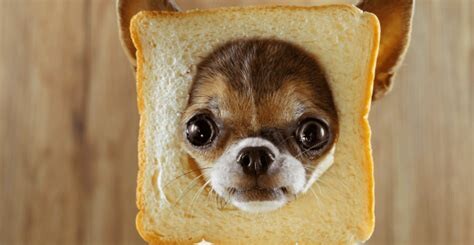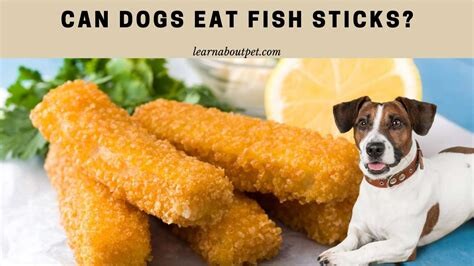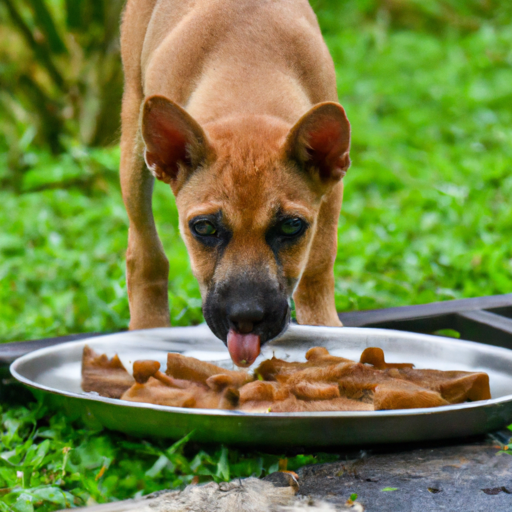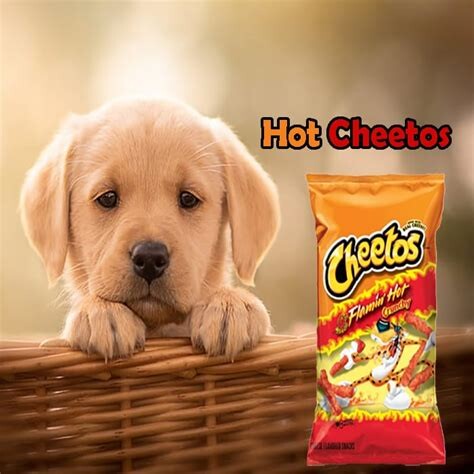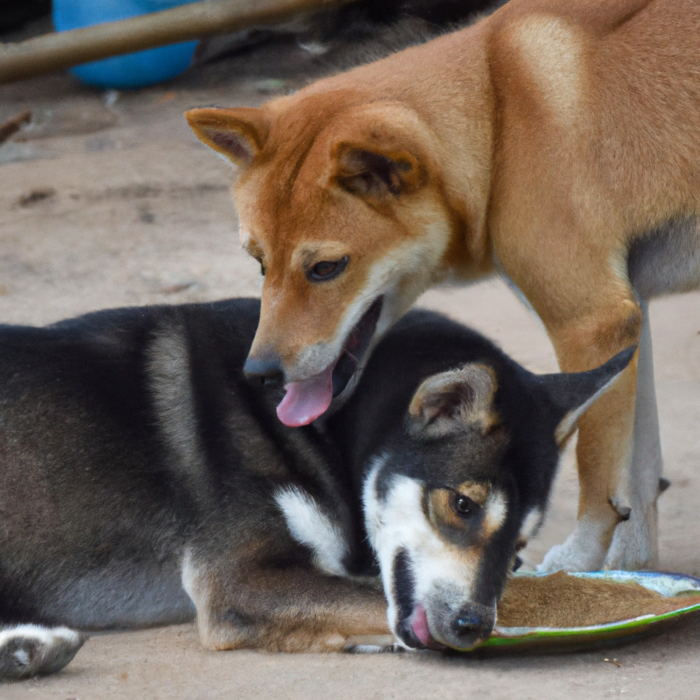Welcome to our blog post all about the safety of feeding hot Cheetos to dogs. While it may be tempting to share your favorite spicy snack with your furry friend, it’s important to understand the potential risks and dangers involved. In this article, we will delve into the ingredients found in hot Cheetos, discuss the potential toxicity risks for dogs, and explore the possible digestive issues that can arise from feeding these treats. Additionally, we will provide alternative, safe, and healthy treats for your canine companion, ensuring their well-being and happiness.
Can Dogs Safely Consume Hot Cheetos?
When it comes to our beloved canine companions, it’s only natural to want to share our favorite snacks with them. One popular snack that many people love is Hot Cheetos. But can dogs safely consume Hot Cheetos? Let’s dive into the topic and explore whether these fiery treats are suitable for our furry friends.
The Ingredients in Hot Cheetos
To understand whether Hot Cheetos are safe for dogs, it’s essential to take a closer look at their ingredients. Hot Cheetos typically contain cornmeal, vegetable oil, artificial flavorings, food colorings, salt, and various spices. While some of these ingredients may not be harmful to dogs, others can pose serious risks to their health.
Potential Toxicity Risks
One of the main concerns with Hot Cheetos is their high spice content. The spicy flavor comes from chili powder or hot pepper extract, which can cause gastrointestinal distress in dogs. Consuming large amounts of spicy foods can lead to inflammation, stomach pain, vomiting, and diarrhea, putting your pup’s health at risk.
Signs of Hot Cheeto Toxicity in Dogs
If your dog happens to sneak a few Hot Cheetos, it’s crucial to be aware of the signs of potential toxicity. Look out for symptoms such as excessive drooling, excessive thirst, lack of appetite, abdominal pain, lethargy, and in severe cases, even tremors or seizures. If you notice any of these signs, consult your veterinarian immediately.
Alternatives and Safe Treats
Instead of giving your dog Hot Cheetos, there are plenty of safe and healthy alternatives to consider. Opt for treats specifically designed for dogs, such as dental chews or bite-sized training rewards. You can also offer your furry friend small portions of cooked lean meats or crunchy vegetables like carrots or green beans as occasional snacks.
In conclusion, while Hot Cheetos may be a popular snack among humans, they are not suitable for our four-legged friends. The spicy flavor, along with potentially harmful ingredients, can lead to digestive issues and even toxicity in dogs. It’s always best to prioritize your dog’s health and stick to treats specifically formulated for their needs. Remember, a happy and healthy pup is a well-loved companion!
Understanding the Ingredients in Hot Cheetos
Hot Cheetos have become incredibly popular in recent years, with people of all ages enjoying their fiery flavor. However, when it comes to our furry friends, it’s important to understand that what may be tasty to us may not be safe for them. As responsible dog owners, we must be mindful of the ingredients in the food we give our canine companions.
List of Ingredients in Hot Cheetos:
| Ingredient | Description |
|---|---|
| Corn | The main ingredient in Hot Cheetos is cornmeal, which provides the base for the crunchy texture we all love. |
| Vegetable Oil | Hot Cheetos are fried in vegetable oil, which adds the desired greasiness and enhances the overall taste. |
| Artificial Colors | Various artificial colors, such as Red 40, Yellow 6, and Yellow 5, are used to give Hot Cheetos their vibrant red color. |
| Flavor Enhancers | Hot Cheetos contain a combination of flavor enhancers like monosodium glutamate (MSG) and disodium inosinate, which intensify the taste. |
| Spices | A blend of spices, including chili powder, garlic powder, and onion powder, is responsible for the distinctive hot and savory flavor profile. |
| Salt | A crucial ingredient in Hot Cheetos is salt, which adds both flavor and acts as a preservative to extend the snack’s shelf life. |
While some of these ingredients may not pose a significant risk to dogs in small quantities, others can be harmful when consumed in excess. For example, the artificial colors used in Hot Cheetos have been associated with allergic reactions in some dogs. Additionally, the high sodium content might lead to salt poisoning or exacerbate existing kidney issues.
It’s essential to keep in mind that dogs have different digestive systems than humans. Spicy foods like Hot Cheetos can cause stomach upset, diarrhea, or gastrointestinal distress in dogs. Furthermore, the high fat content in these snacks can potentially lead to pancreatitis, a serious condition that requires immediate veterinary care.
Given the potential risks associated with the ingredients in Hot Cheetos, it is generally recommended to avoid feeding them to dogs altogether. Instead, it’s advisable to opt for safe and healthy treats specifically formulated for dogs. There are plenty of alternative options available that are both delicious and nutritious, ensuring our furry friends can enjoy their treats without compromising their well-being.
Toxicity Risks for Dogs in Hot Cheetos
When it comes to sharing snacks with our furry friends, it’s important to be aware of the potential toxicity risks certain foods can pose to dogs. Hot Cheetos, a popular spicy snack among humans, may be enticing to our canine companions, but they can have serious detrimental effects on their health. It’s crucial to understand the specific ingredients and their impact on dogs before sharing any human food with them.
Hot Cheetos contain several ingredients that can be harmful to dogs if consumed in significant amounts. One of the main culprits is the spice blend used to give these snacks their signature fiery flavor. The spice mix often includes ingredients like chili powder, garlic powder, and onion powder, all of which can be toxic to dogs in large quantities. Chili powder, for example, contains capsaicin, a compound that can cause gastrointestinal upset and even lead to more severe issues, such as anemia.
In addition to the spice blend, Hot Cheetos also contain artificial flavorings, preservatives, and colorings. These additives can be problematic for dogs with sensitivities or allergies. Some dogs may experience digestive issues after consuming foods containing artificial additives, such as vomiting or diarrhea. Furthermore, the bright red color of Hot Cheetos comes from artificial dyes, which can potentially cause allergic reactions in dogs and have been linked to hyperactivity and behavioral problems.
- Chili powder
- Garlic powder
- Onion powder
- Artificial flavorings
- Preservatives
- Colorings
It’s vital to be aware of the signs of Hot Cheeto toxicity in dogs. If your canine companion has ingested Hot Cheetos, watch out for symptoms such as vomiting, diarrhea, excessive drooling, abdominal pain, lack of appetite, or unusual lethargy. These signs indicate potential digestive distress and should not be taken lightly. In severe cases, dogs may also experience pancreatitis, which is a painful inflammation of the pancreas.
To ensure the well-being of our four-legged friends, it is always best to avoid feeding them Hot Cheetos or any other spicy, artificially flavored, or colored snacks. Instead, opt for safe and healthy treats specifically formulated for dogs. There are a plethora of options available, including chew toys, dental treats, and natural treats made from ingredients like sweet potatoes or carrots. These alternatives not only provide dogs with a tasty treat but also offer additional health benefits.
| Toxic Ingredients in Hot Cheetos | Signs of Hot Cheeto Toxicity | Safe and Healthy Treats for Dogs |
|---|---|---|
| Chili powder | Vomiting | Chew toys |
| Garlic powder | Diarrhea | Dental treats |
| Onion powder | Excessive drooling | Natural treats |
| Artificial flavorings | Abdominal pain | |
| Preservatives | Lack of appetite | |
| Colorings | Unusual lethargy |
Potential Digestive Issues from Hot Cheetos
Hot Cheetos have become a popular snack among many individuals, including dog owners. However, it is important to consider the potential digestive issues that can arise from feeding Hot Cheetos to our furry companions. While dogs are known for their scavenger-like behavior and ability to digest a variety of foods, certain ingredients and additives found in Hot Cheetos can pose health risks to dogs.
One of the main concerns with Hot Cheetos is the high fat content. The excessive fat can lead to digestive issues such as diarrhea and upset stomachs in dogs. Additionally, the spicy flavoring of Hot Cheetos contains ingredients like chili powder, garlic powder, and onion powder, which can be harmful to dogs if consumed in large amounts.
Furthermore, the bright red artificial coloring used in Hot Cheetos is another potential issue. This artificial dye, known as Red 40, has been linked to digestive problems and allergic reactions in dogs. It is always best to steer clear of artificial colors and additives when it comes to selecting treats for our furry friends.
To ensure the well-being of our dogs, it is crucial to avoid feeding Hot Cheetos to them. Instead, we can opt for healthier alternatives that are safe and enjoyable for our canine companions. For example, plain air-popped popcorn or carrot sticks can provide a satisfying crunch without the harmful ingredients found in Hot Cheetos. It’s always a good idea to consult with a veterinarian for advice on suitable treats for your specific dog’s dietary needs.
In conclusion, although the temptation may arise to share our favorite snack, Hot Cheetos, with our furry friends, the potential digestive issues that can arise from consuming these snacks can outweigh the benefits. It is essential to prioritize the health and well-being of our dogs by avoiding feeding them Hot Cheetos and opting for safer and healthier treat options. Remember, a happy and healthy canine companion is always the best reward!
Signs of Hot Cheeto Toxicity in Dogs
Hot Cheetos have become a popular snack among humans, but what about our furry friends? Can dogs safely consume Hot Cheetos? While it may be tempting to share these spicy snacks with your canine companion, it is important to understand the potential risks involved. One of the key concerns when it comes to dogs consuming Hot Cheetos is the possibility of toxicity.
When examining the ingredients in Hot Cheetos, it becomes evident why they may not be suitable for dogs. These fiery snacks typically contain ingredients such as cornmeal, vegetable oil, and seasonings like chili powder, artificial flavorings, and preservatives. The combination of these ingredients can spell trouble for our four-legged friends. Dogs are not designed to handle the level of spice and added artificial additives that Hot Cheetos bring to the table.
So, what are the signs of Hot Cheeto toxicity in dogs? One of the most obvious indicators is gastrointestinal distress. Consumption of Hot Cheetos can lead to upset stomach, vomiting, diarrhea, and in some cases, even bloody stools. Additionally, dogs may exhibit signs of discomfort such as excessive drooling, abdominal pain, or reluctance to eat or drink. It is crucial to keep a close eye on your dog if you suspect they have ingested Hot Cheetos or any spicy snacks.
- Upset stomach
- Vomiting
- Diarrhea
- Bloody stools
- Excessive drooling
- Abdominal pain
- Reluctance to eat or drink
If you notice any of these signs in your dog, it is important to seek veterinary care immediately. Hot Cheeto toxicity can lead to more severe complications if left untreated. Your veterinarian will be able to provide appropriate guidance and treatment to help your furry friend recover from the adverse effects of consuming Hot Cheetos.
Instead of feeding Hot Cheetos to your dogs, it is best to explore safe and healthy treats for your canine companion. There are plenty of dog-friendly alternatives available that are specifically formulated to meet their nutritional needs. Opt for treats made from high-quality ingredients, such as lean meats or specially formulated dog treats that are designed to promote dental health or support joint function.
| Safe and Healthy Treats for Dogs | |
|---|---|
| Carrot sticks | Packed with vitamins and crunch |
| Peanut butter | A tasty and protein-rich option |
| Blueberries | Fresh and antioxidant-rich |
| Boiled chicken | A lean and protein-packed indulgence |
| Dental chews | Promotes dental health and reduces tartar buildup |
The health and well-being of our furry friends should always be a top priority. By being aware of the potential signs of Hot Cheeto toxicity in dogs and understanding the importance of providing safe and healthy treats, we can ensure they lead a happy and healthy life free from unnecessary risks.
Alternatives to Feeding Hot Cheetos to Dogs
Hot Cheetos may be an irresistible snack for humans, but when it comes to our furry friends, it’s important to consider their health and well-being. Feeding dogs hot cheetos can lead to various health complications and discomfort. However, there are plenty of alternative treats that you can offer your canine companion, ensuring they enjoy a delicious snack without any harmful effects. Let’s explore some safe and healthy alternatives that will leave your pup’s tail wagging with joy!
List of Safe and Healthy Treats for Dogs:
| Treat | Description |
|---|---|
| Carrot sticks | Crunchy and low in calories, carrots are a great alternative to hot cheetos. They are rich in vitamins and minerals, promoting good eye health and a shiny coat. |
| Apple slices | A refreshing and naturally sweet treat, apples are packed with fiber and essential nutrients. Just make sure to remove the seeds and core, as they can be harmful to dogs. |
| Peanut butter-filled Kong toys | Kong toys are not only entertaining, but they can also be filled with healthy and delicious treats like peanut butter. It keeps dogs engaged while offering a tasty reward. |
| Green beans | Green beans are a low-calorie and nutritious alternative to hot cheetos. They are high in fiber and can help your dog feel fuller for longer, making them great for weight management. |
| Plain rice cakes | Rice cakes are a crispy and low-fat option that can be given to your dog as a treat. However, make sure to choose plain ones without any added flavors or seasonings. |
When choosing alternatives to hot cheetos, it’s essential to consider your dog’s specific dietary needs and any existing health conditions. Always consult with your veterinarian before introducing new treats to your dog’s diet to ensure they are safe and suitable for their individual circumstances.
In conclusion, while hot cheetos may tempt us with their fiery flavor, they are not suitable for our beloved canine companions. By opting for safe and healthy alternatives like carrot sticks, apple slices, peanut butter-filled Kong toys, green beans, and plain rice cakes, you can treat your dog in a way that promotes their health and happiness. Remember, a happy dog is a healthy dog!
Safe and Healthy Treats for Your Canine Companion
When it comes to treating our furry companions, it’s important to choose options that are not only tasty but also safe and healthy for them. While some human snacks may be tempting to share with our dogs, it’s crucial to remember that not all foods are suitable for our four-legged friends. To help you provide the best treats for your canine companion, we’ve compiled a list of safe and healthy alternatives to feeding hot cheetos to your dog.
1. Carrots: Carrots are not only low in calories but also packed with vitamins and minerals that are beneficial for dogs. They are a great choice for a crunchy and satisfying treat.
2. Blueberries: These tiny berries are not only delicious but also rich in antioxidants and vitamin C. They make an excellent sweet treat for dogs and can be served frozen for an added coolness during hot summer days.
3. Peanut Butter: Most dogs go crazy for peanut butter, making it a fantastic option for a tasty treat. Just be sure to choose a peanut butter that doesn’t contain any added sugars or xylitol, as these can be harmful to dogs.
| Treat | Benefits |
|---|---|
| Apples | High in fiber and vitamin C |
| Watermelon | Hydrating and low in calories |
| Plain Yogurt | Good source of probiotics |
| Sweet Potatoes | Rich in vitamins and easy to digest |
In addition to the options mentioned above, it’s essential to remember that not all human foods are safe for dogs. Some common foods that should be avoided include chocolate, grapes, onions, and avocado. Always consult with your veterinarian before introducing any new foods into your dog’s diet.
By choosing safe and healthy alternatives for treats, you can ensure that your canine companion receives the best nutrition while still enjoying delicious snacks. Remember to offer treats in moderation, as excessive consumption can lead to weight gain or other health issues. Your dog’s well-being is worth the extra effort in finding the perfect treats for them!
Frequently Asked Questions
Can Dogs Safely Consume Hot Cheetos?
No, dogs should not consume Hot Cheetos.
What are the ingredients in Hot Cheetos?
The ingredients in Hot Cheetos include enriched corn meal, vegetable oil, seasoning, salt, sugar, and monosodium glutamate (MSG).
What are the toxicity risks for dogs in Hot Cheetos?
Hot Cheetos can be toxic for dogs due to their high fat and sodium content, as well as the presence of artificial additives like MSG.
Can Hot Cheetos cause potential digestive issues in dogs?
Yes, Hot Cheetos can cause digestive issues in dogs, including stomach upset, vomiting, diarrhea, and discomfort.
What are the signs of Hot Cheeto toxicity in dogs?
The signs of Hot Cheeto toxicity in dogs may include vomiting, diarrhea, lethargy, loss of appetite, abdominal pain, and increased thirst.
Are there any alternatives to feeding Hot Cheetos to dogs?
Yes, there are many safe and healthy treats available for dogs, such as carrots, apples, peanut butter, and commercially-made dog treats.
What are some safe and healthy treats for canine companions?
Some safe and healthy treats for dogs include cooked chicken, blueberries, sweet potatoes, and frozen treats made with yogurt and fruits.
